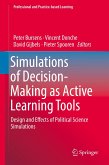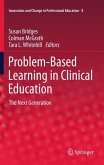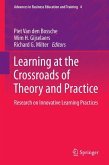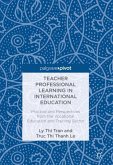This volume examines the EU's changing educational context and its challenges. Based on an extensive survey of more than 2000 European Studies courses in 30 European countries, it maps and analyses the features of teaching methodologies as they emerge from both disciplinary as well as interdisciplinary curricula. It presents a series of case studies on some of the most-used innovative teaching tools emerging in the field such as simulation games, e-learning, problem based learning, blended learning, and learning through the use of social networks. Based on the contributors' own experiences and academic research, the book examines both strengths and possible pitfalls of these increasingly popular methods. The book's critical approach will inspire educators and scholars committed to improving the teaching methods and tools in the area of European Studies and other programmes of higher education facing similar challenges.
"In a commendable format, the book addresses those involved or about to engage in the instructional design and teaching of European Studies. ... The lengths of chapters were ideal for reading, well-structured with regards to the information they provided. ... Those interested in the history and evolution of European Studies programmes should consider reading the introduction by Baroncelli, Farneti and Vanhoonacker. ... the book assembles a variety of topics, perspectives and approaches within the realm of European Studies' pedagogy." (Sophie Wulk, Journal of Contemporary European Research, Vol. 12 (4), 2016)
"This ground-breaking book makes an original contribution to our knowledge of how the European Union is taught by systematically mapping and analyzing the broad range of teaching methodologies utilized. ... I found the book stimulating and thought-provoking. It is an excellent work that also serves as a useful model for how to conduct high quality pedagogic research in European Studies." (Simon Lightfoot, Journal of Common Market Studies, Vol. 53 (2), 2015)
"This ground-breaking book makes an original contribution to our knowledge of how the European Union is taught by systematically mapping and analyzing the broad range of teaching methodologies utilized. ... I found the book stimulating and thought-provoking. It is an excellent work that also serves as a useful model for how to conduct high quality pedagogic research in European Studies." (Simon Lightfoot, Journal of Common Market Studies, Vol. 53 (2), 2015)








